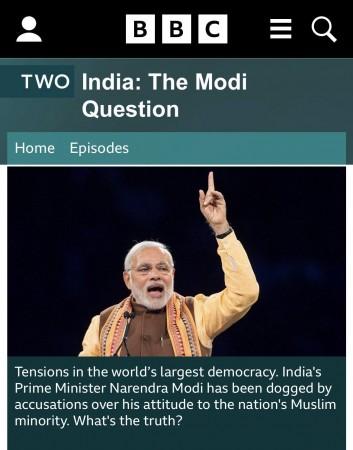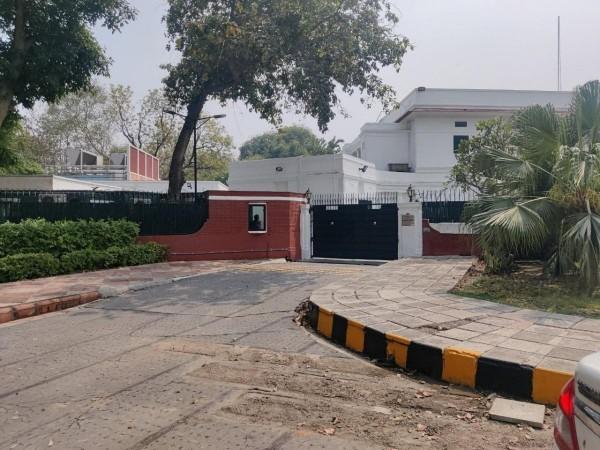There is only one way to make peace, many ways to conflict resolutions, however, there can be countless novel ways of escalating tensions, teaching a lesson or seeking revenge. Sometimes, nations are no different than people with emotions.

Last week, local authorities in Delhi decided to create a public toilet near the British High Commissioner's residence. The issue, read against the backdrop of latest developments amidst UK-India relations, created a diplomatic stir. The move, resisted by the UK government on security grounds, gained more traction than it would have considering India's decision to curtail special privileges and security for British diplomats in India.
How did it all start? Probably with the BBC documentary "India: The Modi Question" highlighting the sectarian riots that took place in India in 2002 at Godhra and questioning Narendra Modi's tacit role as then Chief Minister of Gujarat.
The documentary was seen as a direct stand-off between the Prime Minister of a nation and national broadcaster of another. BJP-ruled states in India wasted no time in banning the documentary released in two parts in January 2023. MEA spokesperson, Arindam Bagchi, in one of the weekly media briefing, called the documentary, "a piece of propaganda designed to push a particular discredited narrative." He also used the words like "colonial mindset."
The development was soon followed with the most prevalent question; Did Rishi Sunak stand with Modi on the documentary. "The UK government's position on that is clear and long standing and it has not changed. Of course, we do not tolerate persecution anywhere, but I am not sure that I agree at all with the characterisation that the honourable gentleman has put forward." It was seen as obfuscation of the tricky situation in British media.
Come February, IT "survey" by the Income Tax Department at BBC's offices in New Delhi further caused a stir loud enough to doubt if it'll have any repercussions on the trade and economic relations between the two parties. The Indian officials said in interviews that British government and BBC were autonomous of each other, so tax searches at the office would not be regarded as action against the UK government.
However, the Labour party in the UK condemned the raids and called them, "deeply worrying,' with ministers saying that they raised the issue with their Indian counterparts.
Indian High Commission in UK
Cut to the incident last week where pro-Khalistan groups protested outside the Indian high commission in London. The situation became tense after Khalistani supporters took down the Indian flag on Sunday last week raising questions about the state of security of Indian diplomats in UK.
After the incident, India lodged a strong protest with the British envoy demanding serious action against and arrest of perpetrators. A much bigger national flag was spotted atop the consulate on Wednesday.

However, last Wednesday, in a move, clearly seen as a tit-for-tat lesson, India reduced the security cover outside the British High Commission in Delhi and also the envoy's residence. A day later, UK foreign secretary James Cleverly said in a statement that Indian and UK share a thriving relationship, "driven by deep, personal connections."
The UK foreign secretary also said, "the violence towards the staff at the Indian High Commission is unacceptable and the UK government will ensure security at the Indian High Commission as the security of the foreign missions of all countries in the UK is a serious issue." Indeed it is, and when security lapses happen on one side and security removal on the other side, it speaks volumes.








